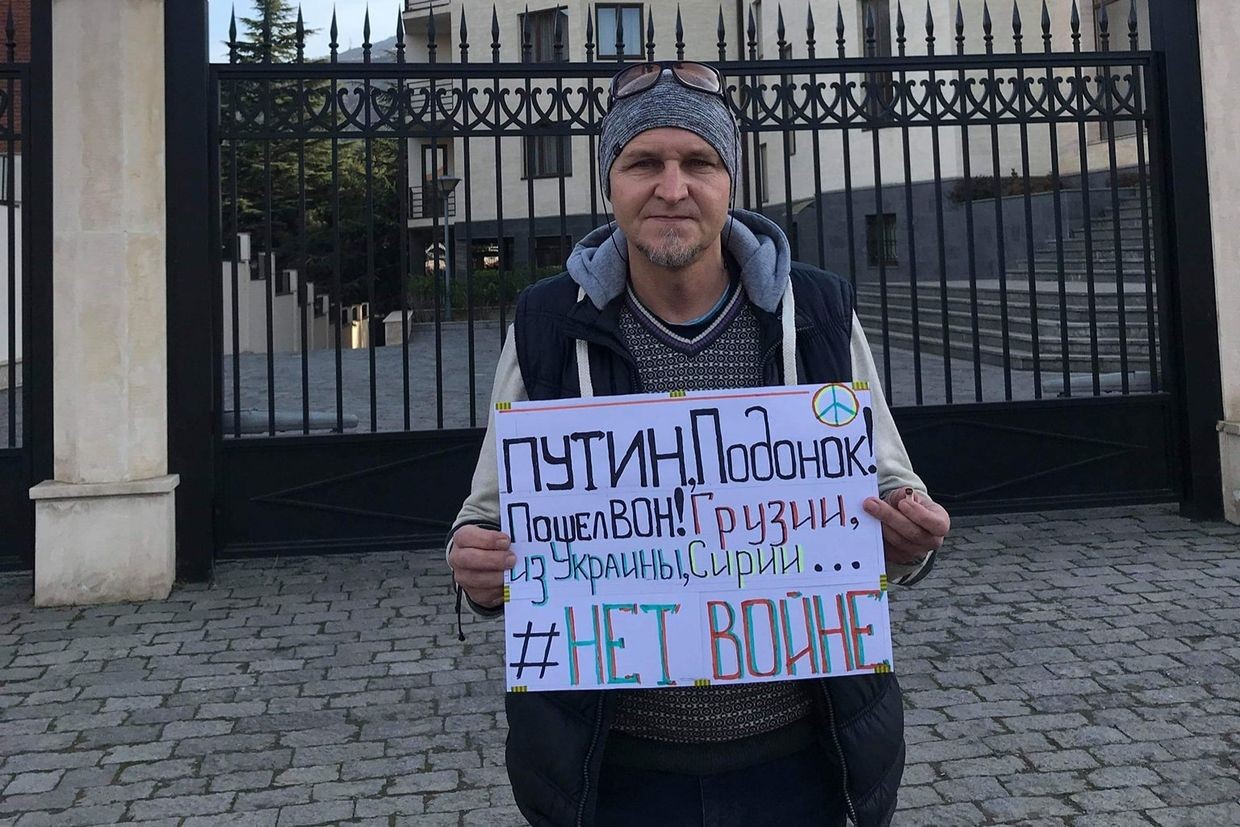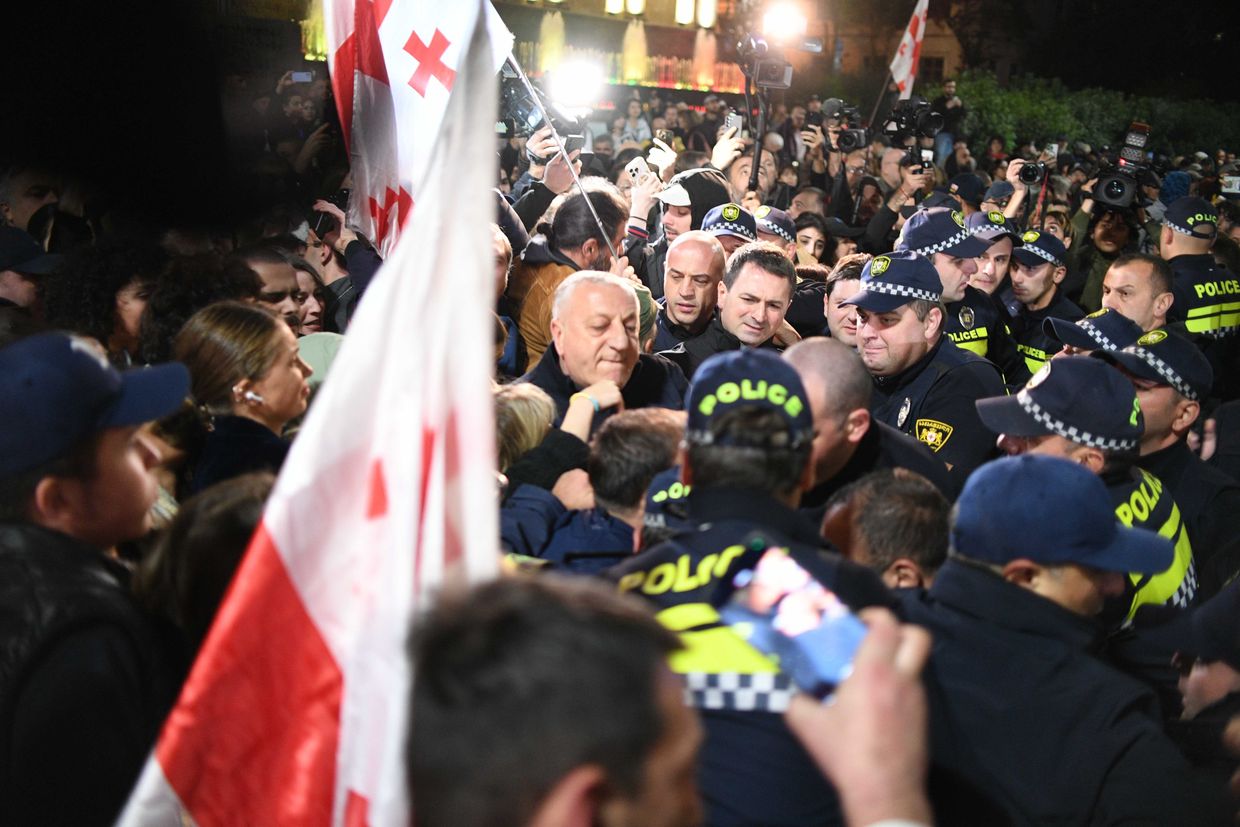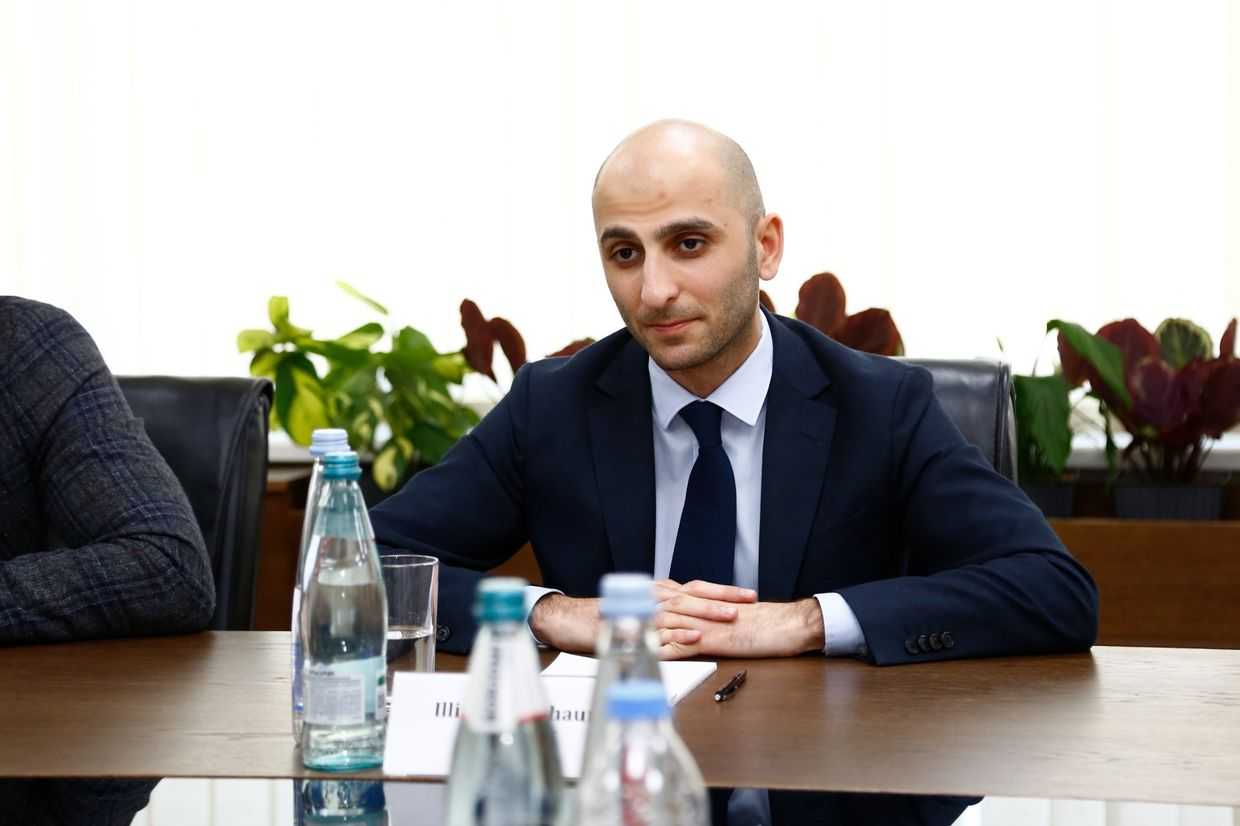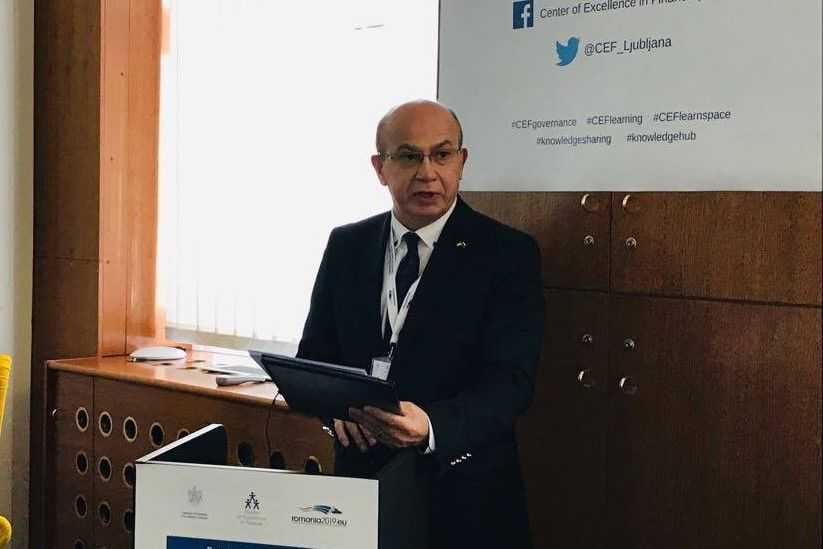
A Georgia-based Russian citizen Nikolai Belikov who was detained during ongoing anti-government protests in Tbilisi, was remanded to 14 days of administrative detention and subsequent deportation. His lawyer spoke about the risks Belikov would face if returned to Russia.
Belikov is one of the dozens of people detained in Tbilisi following the tightening of protest laws on 16 October. Those detained faced administrative charges, including road blocking.
According to his lawyer, Mariam Chkheidze, in addition to the road-blocking charge, the investigation also accused Belikov of disobeying police orders. He was detained on 23 October and sentenced on the same day.
According to Chkheidze, if his client cannot secure asylum in a third country within the next 14 days, he will be forced to return to Russia. The lawyer stated that Belikov is opposed to the policies of the Russian government and fled to Georgia in 2016 to escape ‘repression, terror, and several [acts] of violence against him’.
‘He was actively involved in all protests, both in Russia and in Georgia, opposing the regime, human rights violations, and the war that Russia, a terrorist state, is waging in Ukraine’, Chkheidze said, as cited by Publika.
‘Deporting him is unacceptable. Nikolai Belikov has no other asylum options and would be forced to go to a country with harsh conditions and widespread human rights violations’, the lawyer added.
She also stated that in its letter, the Migration Department used an ‘absurd reasoning, claiming that there are no mass human rights violations in Russia’.
OC Media contacted the Migration Department regarding Chkheidze’s claim.
Under amendments to the migration law passed by the ruling Georgian Dream party in June, deportation of a foreigner for up to three years is allowed for minor hooliganism, disobeying the police, and insulting an officeholder.
In Belikov’s case, the ban was set for a period of two years. His defence team plans to appeal the court’s decision.
Belikov has been regularly writing in support protest actions Tbilisi, having posted numerous photos of current and past demonstrations on social media. Some of these messages and photos date back to 2018 or earlier.
Protesters have been blocking the road in front of parliament daily since 28 November 2024, when the government announced it was ‘postponing’ the country’s EU application.
Since then, the government has repeatedly tried to suppress the protests — first through brutal police violence, and later with road-blocking fines that increased from ₾500 ($180) to ₾5,000 ($1,800) at the end of 2024.
When protests continued, the ruling party cancelled the fines altogether and introduced imprisonments for first offences with the latest amendments.
The consequences are far more severe for repeat offences: while the first-time penalty for blocking roads or covering one’s face is up to 15 days’ imprisonment, a second offence is punishable under criminal law by up to one year, and subsequent offences by up to two years.











